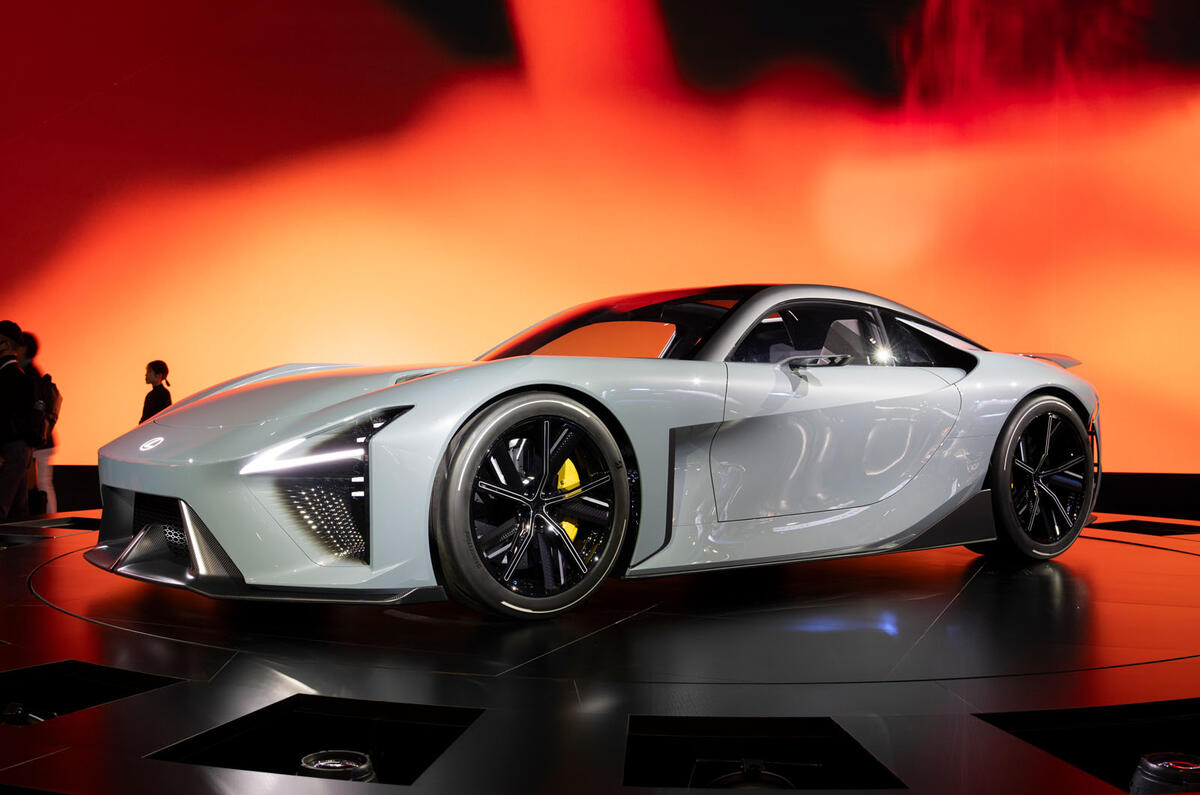Toyota is on track to launch solid-state batteries (SSB) in a production car by 2028 – and it is set to deploy the bold new technology first in a performance electric car.
Toyota is one of several mainstream car makers investing in the development of SSB technology, which has long been viewed as a crucial next step for electric vehicle development, with its potential to significantly reduce the weight and size of battery packs while increasing performance.
SSBs are much more energy dense than the lithium ion batteries widely used in EVs today so allow for much longer ranges while occupying the same physical footprint - and are therefore key to reducing the height of EVs.
Toyota announced its plans to eventually productionise the technology almost a decade ago. More recently, it revealed a prototype pack, saying it would feature in a production car in 2027 and be capable of providing up to 745 miles of range.
Giving an update on the programme at the Tokyo motor show, Keiji Kaita, president of Toyota's Carbon Neutral Engineering Development Centre, said solid-state technology is still considered "very important in the future" for the significant improvements in usability and durability it offers compared with today's conventional liquid-based packs.
He added that the firm is "sticking on the schedule" to put its first SSB in a production car in 2027 or 2028 and is also considering commercial vehicle opportunities.
Toyota says SSBs are capable of producing double the power of a current-generation battery, can triple the range and are four times more durable - characteristics that will ultimately define the types of cars they are used for.
"For the all-solid-state battery, the characteristic is high power, compact and long range," said Kaita. "The cars will leverage these attributes."
Based on that manifesto, a likely debut model for the new SSB battery tech is the upcoming Lexus supercar - a radical successor to the LFA that is thought to serve as an electric sibling model to the upcoming, V8-engined Toyota GR supercar. Its ultra-low silhouette and promise of super-fast performance would make it a logical beneficiary of the new batteries.
However, asked for clues as to the identity of the first solid-state car, Kaita would only say: "Whether it will be a Lexus or Toyota, we will leave that to your imagination."
Another important factor in Toyota's development of SSP is the significant implication it could have for reducing the environmental impact of BEVs.
“We will try to reduce the carbon footprint and the key here is reducing the CO2 output in the process of manufacturing the material. But the most important thing is producing a battery whose life is longer," said Kaita.
If an SSB battery remains usable for four times longer than a conventional battery, theoretically its total carbon footprint during the use cycle is 75% reduced. "We keep in mind that we want to prolong the life of batteries," he said.
Hiroki Nakajima, Toyota's chief technology officer, said that "technically speaking", SSB could be integrated into Toyota's current EV platforms – where it could offer the same range in half the space – but the technology is primarily intended for use in new dedicated architectures.








Join the debate
Add your comment
It does make you wonder why Toyota is pushing so hard for hydrogen fuel cell cars when SSB's are probably less than a decade away from powering their mainstream cars.....
Maybe certain power systems would work better in different areas of the Planet?, what Toyota seemed to working on just now sounds like the nirvana of car propulsion lighter smaller more range and power also,sounds too god to be true.
Probably because chemical/metal batteries are a transitional technology for transport applications and Toyota can afford to play the long game.